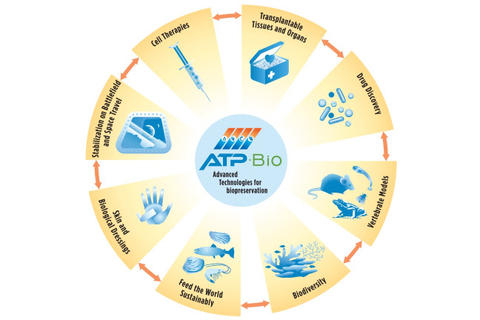
Carlson School Part of University Team Awarded $26 Million NSF Grant
Tuesday, August 4, 2020
A major National Science Foundation grant awarded to the University of Minnesota includes a role for the Carlson School.
The $26 million grant, announced today, creates the Engineering Research Center (ERC) for Advanced Technologies for the Preservation of Biological Systems (ATP-Bio). The goal of the center, led by the U of M’s Institute for Engineering in Medicine, is to develop and deploy breakthrough bioengineering technology to “stop biological time,” thus addressing fundamental supply chain issues in organ and tissue transplants, cell therapies, and more.
“We are so proud to contribute to this initiative,” says Carla Pavone, the associate director of the Gary S. Holmes Center for Entrepreneurship
and a member of the ATP-Bio leadership team. “The University and its partners are world experts in biopreservation, and it’s exciting to help researchers translate their discoveries into world-changing products and services.”
Pavone and the Holmes Center will lead the grant’s Innovation Ecosystem pillar, which will help commercialize the inventions produced by ATP-Bio. The Carlson School will help researchers extend their thinking beyond their labs to potential markets by applying a strategic management perspective and the latest best practices for entrepreneurs. In addition, ATP-Bio will tap Carlson School graduate student resources, such as the Medical Industry Leadership Institute Valuation Lab, to assess the inventions’ business feasibility.
The ATP-Bio Innovation Ecosystem pillar will also include a network of more than 50 industry partners to collaborate with its inventors. That engagement will include assistance with capital equipment, sharing of technical and business expertise, and licensing of ATP-Bio technologies, Pavone says.
The Carlson School joins four other U of M colleges (the College of Science and Engineering, the Medical School, the College of Education and Human Development, and the Law School) in this effort. The ATP-Bio consortium also includes Massachusetts General Hospital, the University of California Riverside, and the University of California Berkeley.
The current award is for five years and can be renewed for another five years and $24.6 million.
“We are so proud to contribute to this initiative. The University and its partners are world experts in biopreservation, and it’s exciting to help researchers translate their discoveries into world-changing products and services.”
